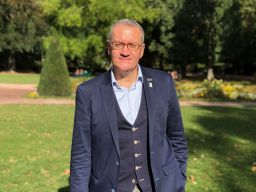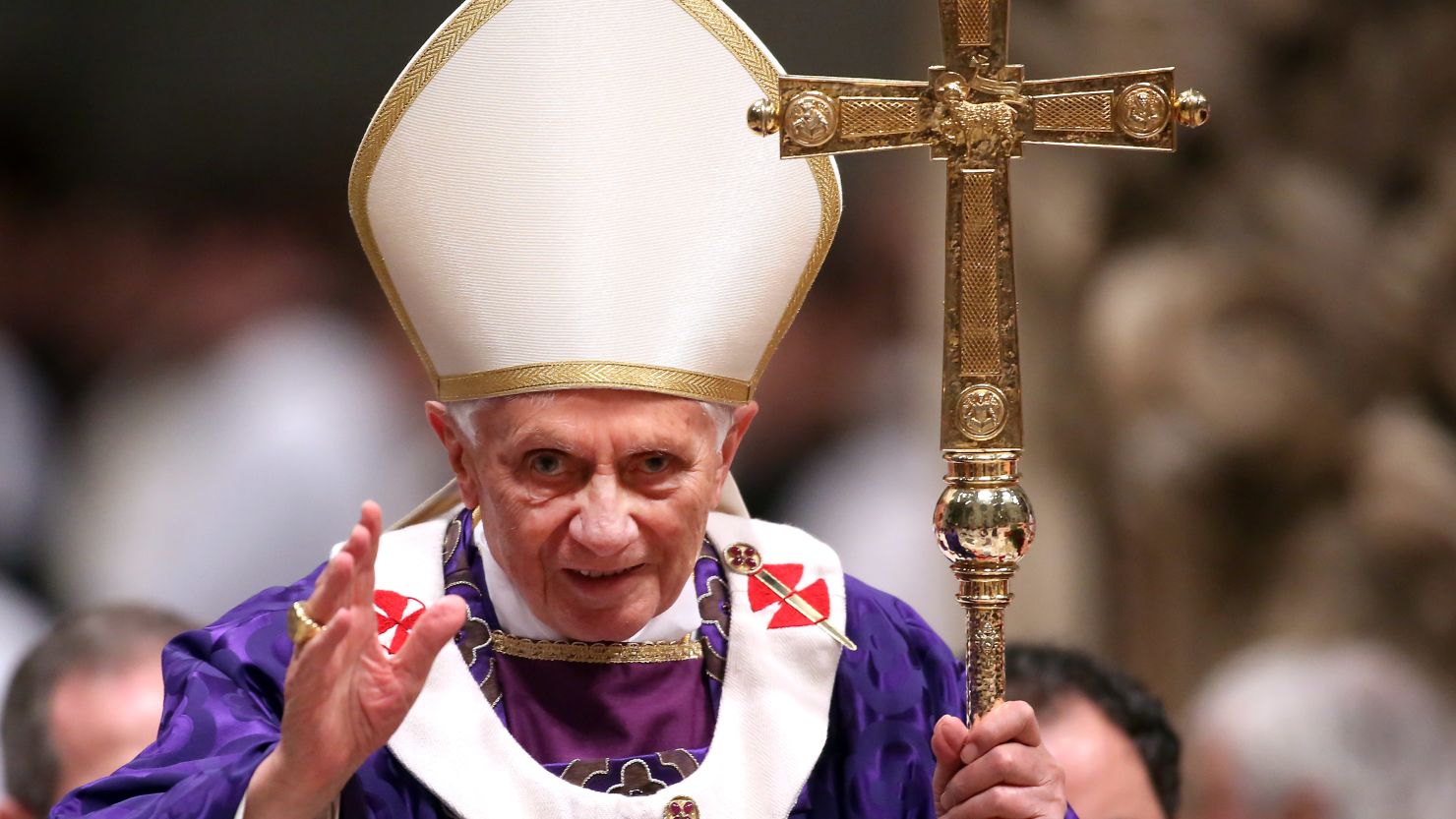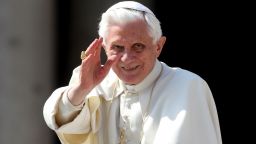Editor’s Note: Matthias Katsch is the founder and spokesman of Eckiger Tisch, a German-based non-profit association representing people affected by sexual violence in the Catholic Church. The views expressed in this commentary are his own. Read more opinion on CNN.
As a survivor of sexual violence at the hands of two Jesuit priests in Berlin when I was a young teenager in the 1970s, I, like many victims, have long remained silent. I made a commitment to end this silence 12 years ago. I had thought I was alone. But there were many of us.

After learning in 2010 that my perpetrators were transferred to different churches, giving them opportunities to hurt more children, I knew I had to speak out. I was petrified to realize that I wasn’t alone. At my school alone, 60 other victims came forward with their stories, and together we founded the victims’ initiative “Eckiger Tisch,” of which I am still the managing director and spokesperson.
In the Catholic world, Germany’s national branch is one of the richest and most powerful. Yet, despite its vast financial wealth, survivors of this abuse, including myself, have received only a symbolic financial recognition for the horrors we have been through. Most of the perpetrators, meanwhile, were allowed to continue with their lives with no real consequences.
The magnitude of sexual violence brought to light by Eckiger Tisch and others in 2010 triggered the first of several church abuse scandals in Germany in recent years. In numerous schools and other institutions of the Catholic Church, hundreds of victims came forward in a short amount of time. Subsequent inquiries found that protectors of the perpetrators silenced victims and ignored their allegations. A pattern of cover-up tactics was revealed.
It’s a pattern I recognize in the latest revelations about the former Pope Benedict XVI. Between 1977 and 1982, he was known as Cardinal Joseph Ratzinger, the Archbishop of Munich and Freising. During Ratzinger’s time there, he oversaw the clerics in the archdiocese, including those accused of sexual abuse. It took a legal, independent review to shine a light on the culture of cover-up and protection for perpetrators, which Ratzinger failed to address. Only two years later, Ratzinger left Munich to go to Rome as chief guardian of the faith, where he was also responsible for dealing with abuse cases for 25 years.
Only after written evidence which appeared in the legal report published last week, Ratzinger later admitted being at a meeting about an abuser priest when he ran the Munich diocese. He blamed an earlier denial on “an error in the editing of his statement.”
Now his past is catching up with him and the rest of the Catholic Church. With the accusations reaching the top of the hierarchy, this is yet another devastating moment for the entire institution. How can we trust the institution led by individuals who have protected church leaders and abusers ahead of children?
The scandals are a lifetime scar for the children that experienced them. Sexual abuse has an impact on every aspect of personal and professional life. Many victims have psychological problems, some develop addictions. You might ask, how does one move on from a sexual assault at the hands of those who teach you about family and community values? How do we provide healing when we see the head of church implicated in the misconduct? The answers are not straightforward, but they begin with the overhaul of a Catholic Church system that is rotten to the core.
One could see this latest inquiry as an opportunity for the Catholic Church to unite in this fight, address its problems and become part of the solution. Hundreds of millions of children are still cared for and grow up in the Catholic Church, and we have seen how destructive cover-ups can be.
It is the bravery of the Munich victims that, yet again, has exposed the Catholic Church’s protection of predators. Those victims had to exert pressure on the powerful to act, trust and confide in the legal process and share their stories. Without those survivors willing to come forward, this struggle to free victims from silence, loneliness and guilt would not exist.
The tragedy of sexual abuse at the hands of priests equals the scale and reach of the Catholic Church globally. As one of the world’s oldest and largest institutions, its power and scandals are not limited to one city, region or country. According to the Annuario Pontificio 2020, there were 1.3 billion baptized Catholics worldwide, represented by 3,500 dioceses and eparchies around the world. There is hardly a country where the Catholic Church hasn’t faced sexual abuse allegations among those dioceses. And as the survivors keep coming forward, we are reminded that this isn’t a problem of the past.
We know that sexual violence against children and young people stretches back far beyond the Catholic Church abuse of the 1970 and 1980s. Children and adolescents are exposed to sexual violence in many forms at a staggering rate. According to the 2020 WHO Global Status Report on Preventing Violence Against Children, violence affects the lives of up to 1 billion children worldwide, with long-lasting and costly emotional, social and economic consequences.
At the beginning of the pandemic, UNICEF and other international organizations have warned us hundreds of millions of children around the world will likely face increasing threats to their safety and well-being – including mistreatment, gender-based violence, exploitation, social exclusion and separation from caregivers.
I welcome the adoption of the United Nations’ Sustainable Development Goals, notably Goal 16, which includes a commitment to end violence. This, along with the UN Convention on the Rights of the Child, places the dignity of children and their right to live free from violence and fear as a priority on the international development agenda. We have also seen the creation of the US National Blueprint to End Sexual Violence Against Children and Adolescents, providing a road map of steps for the US federal government to prevent sexual violence against children and adolescents. It ensures that those who experience sexual violence have access to the healing and justice they deserve.
For the first time, we have a chance to put pressure on Western countries as survivors from all over the world, united by The Brave Movement, a network of abuse survivor associations, who will be joining the 2022 G7 Summit in the Bavarian Alps in Germany. We will be calling on governments to deliver practical and cost-effective programs, policies and systems that prevent child abuse and provide effective interventions to assist children and families during and after a crisis, helping survivors heal and seek justice. It is time for an international action plan to be adapted in each country.
The Catholic Church can lead the way and organize a victims’ recovery ministry and adequate compensation for its victims worldwide. It must open its archives and allow independent investigations even in its headquarters. During the last years of Benedict’s reign, and further under Francis, many hoped for reforms and open dialogue led by the church. But with recent revelations, it is clear that the issues are as deep as the scars of the survivors, and we are yet to see a leader who is not afraid of the past.
Ratzinger’s fall this week in Munich is a significant turning point. It shows perpetrators can no longer hide in the shadows of those protecting them. Victims are no longer defenseless. We are no longer speechless. As human rights activists and survivors of sexual abuse, we are liberating ourselves and ensuring a future where children can grow up free from violence and abuse in every corner of the world.





